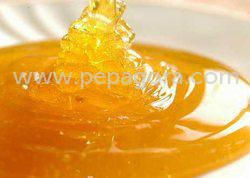Balrampur Chini Mills Limited
Product Range
Fact Sheet
- Location:West Bengal, India
- Year of Establishment:1975
- Business Type:Manufacturer
- Main Products:Bagasse, Ethanol
- Reviews & Rating:
Get Verified, Sell more with
- Buyer's trust
- Faster conversions
- Better Rankings
- More
Its Free
Verify NowEthanol
Emolecular sieve dehydration unit (msdh) is a modularized, standalone equipment package composed of a distillation system and a molecular sieve dehydration system, along with interconnecting piping and support equipment.
- FOB PriceNA
- Min Order QuantityNA
- Payment TermsNA
Other Details
Emolecular sieve dehydration unit (msdh) is a modularized, standalone equipment package composed of a distillation system and a molecular sieve dehydration system, along with interconnecting piping and support equipment. The distillation system utilizes a single distillation column to : 1. Vaporize the 94. 68% v/v ethanol liquid feed. 2. Redistill an 70 to 75% v/v ethanol liquid stream produced during regeneration of the dehydration beds. the distillation column, depending upon operator adjustment, will output approximately 95% v/v ethanol overhead vapor, while maintaining 0. 05% ethanol concentration in the bottoms. The 120 c column effluent will be discharged to the client's sewer. for production of anhydrous ethanol, the 95% v/v ethanol column overhead vapor flows to the dehydration section where molecular sieve beds remove water by the process of absorption. The msdh perform the absorption in vessels filled with molecular sieve desiccant in combination with strictly controlled pressure and temperature cycles. Each desiccant bed contains millions of tiny, uniform diameter pores, which are established during the manufacture of the desiccant. Different purification applications requires different size pores in the desiccant beads. In this case, where water is absorbed from ethanol, a desiccant with a pore size is selected that selectively retains water. Because water molecules are smaller than ethanol molecules, the water molecules are selectively absorbed into the pores as the mixture of ethanol / water vapors pass through the sieve beds. The ethanol molecules are too large to fit into the selectively sized pores, so the purified ethanol passes out the end of the sieve bed, stripped of the water it originally contained. if this process continued indefinitely, the desiccant would eventually become saturated with water molecules and would be unable to absorb any more water. Therefore, at regular intervals the sieve bed must be regenerated.
Images






